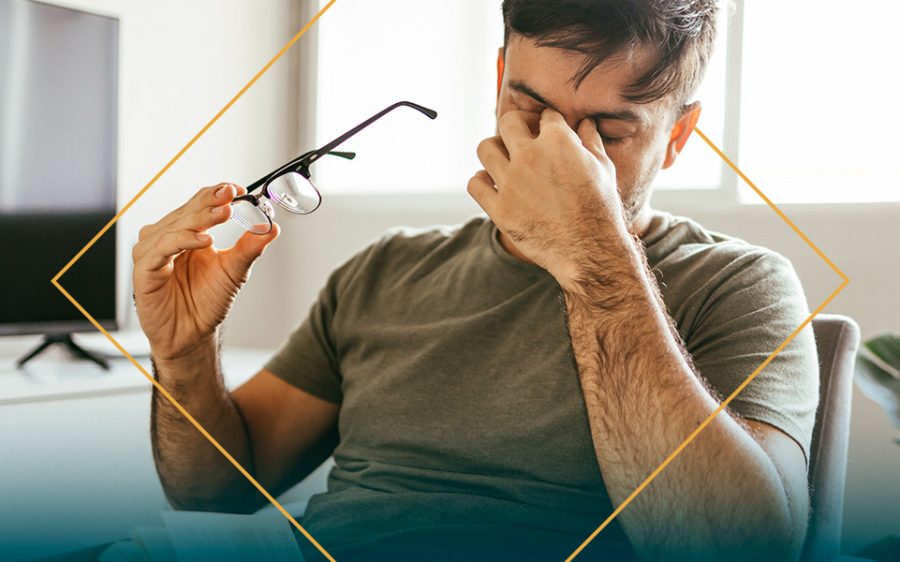
Updated July 25, 2024. Content medically reviewed by Vicky Magobet, PMHNP-BC, on April 19, 2021.
When you're attempting to become sober after prolonged alcohol use, it can be a long journey to recovery. One of the initial steps you can take is to abstain from alcohol use. Although you have the willpower to break the addiction, your body may still go through the challenging physical symptoms of alcohol withdrawal. In this post, we'll explore what alcohol withdrawal syndrome is, the symptoms and stages of alcohol withdrawal, and how inpatient rehab can treat alcohol withdrawal symptoms.
Alcohol withdrawal syndrome symptoms occur when you abruptly stop drinking alcohol after chronic, prolonged use. You experience alcohol withdrawal because your brain and body have gotten used to having a steady supply of alcohol every day, dampening activity in your neurons. When you stop drinking alcohol, your brain overcorrects, and your neurons become overstimulated, leading to various uncomfortable and even life-threatening symptoms in severe cases.
Alcohol is a central nervous system depressant, meaning it slows down brain function. Specifically, drinking alcohol affects how the brain regulates two important neurotransmitters — glutamate and gamma-amino-butyric acid (GABA). The brain always tries to achieve balance, so it adapts to high blood-alcohol levels over time, adjusting GABA and glutamate receptor activity to account for the depressing effects.
This adaptation is why people with alcohol dependency build up a tolerance and need to drink more to feel the same effects over time. If you chronically use alcohol, build up a tolerance and then suddenly stop drinking, your brain becomes overwhelmed with activity because it has adapted to a depressed state. This overwhelmed state causes alcohol withdrawal symptoms.
Typically, the first symptoms of alcohol withdrawal appear around eight hours after stopping or significantly reducing alcohol consumption. Depending on how much alcohol you've been consuming and for how long, the initial alcohol withdrawal symptoms can give way to more debilitating symptoms as the hours pass.
Here are four of the main symptoms and stages of alcohol withdrawal.
Within a few hours of alcohol cessation, your body will start reacting to the surge in brain activity. Symptoms during this period can include the following:
From six to 36 hours after your last alcoholic drink, usually around the two-day mark, you may begin to have seizures. Seizures occur in around 3% of alcohol withdrawal cases. These alcohol withdrawal seizures lower your seizure threshold, meaning you're more likely to experience them again should you go through detox in the future.
The next stage of alcohol withdrawal occurs from 10 to 72 hours after your last drink. It sometimes presents with a rare condition called alcoholic hallucinosis, leading to auditory or visual hallucinations — hearing, seeing or feeling things that are not real — lasting up to two days. Additional symptoms you may experience during this second stage include:
From two days to eight days after your last drink, you may begin to experience alcohol withdrawal delirium, commonly known as delirium tremens (DTs). Research shows that 3% to 5% of people going through alcohol withdrawal syndrome symptoms experience DTs. If you or a loved one is experiencing alcohol withdrawal delirium, it's recommended that you receive medical help. Symptoms of delirium tremens include:
Abruptly quitting alcohol after prolonged use can be a scary, even life-threatening experience. You may feel you can take on the challenge by yourself while you experience some of the minor, stage-one symptoms of alcohol withdrawal, but things can progress quickly. It's crucial to seek help before you reach breaking point.
If you have been heavily using alcohol, you may want to enroll in a medically assisted detox program at a reputable rehab facility, such as Diamond House Detox, to start your healing journey. At Diamond House Detox, we help you detox with evidence-based medications and treatments to help treat physical symptoms. We also provide a healthy diet and positive atmosphere that gives you the best chance at recovery and the right support to help you achieve and maintain your sobriety.
Your body needs support more than ever during alcohol withdrawal. Drink plenty of liquids with a healthy balance of electrolytes, and eat a nutritionally rich diet, including fruits, vegetables and whole grains. Lie down and rest in a comfortable, private space. Your body and brain do most of their mending during sleep, so ensure you sleep enough, even if you need treatment for insomnia. At Diamond House Detox, we organize all of these crucial things for you so you can focus on healing.
Diamond House Detox provides certified incidental medical services, so we have the professional help you need on-site, from dispensing crucial detox medication to treating unexpected injuries. Our team of experienced, expertly trained health care workers is adept at helping people through alcohol withdrawal and supporting clients on their path to recovery.
We specialize in dual diagnosis because alcohol and substance dependency is very often accompanied by additional mental health concerns like depression, post-traumatic stress disorder or anxiety disorders. At our residential facility, you'll receive truly holistic care as we work with you to address the root cause of your alcohol use disorder — not just the symptoms. We also provide rigorous aftercare and access to numerous support groups like LifeRing and SMART Recovery to give you the best chance at thriving long-term.
You don't have to go through detox from alcohol alone. Let compassionate, caring experts take care of you as you get healthy. Our Sacramento, California, facility has caring and knowledgeable staff waiting to help you. Contact us today and receive confidential help for your alcohol use disorder.